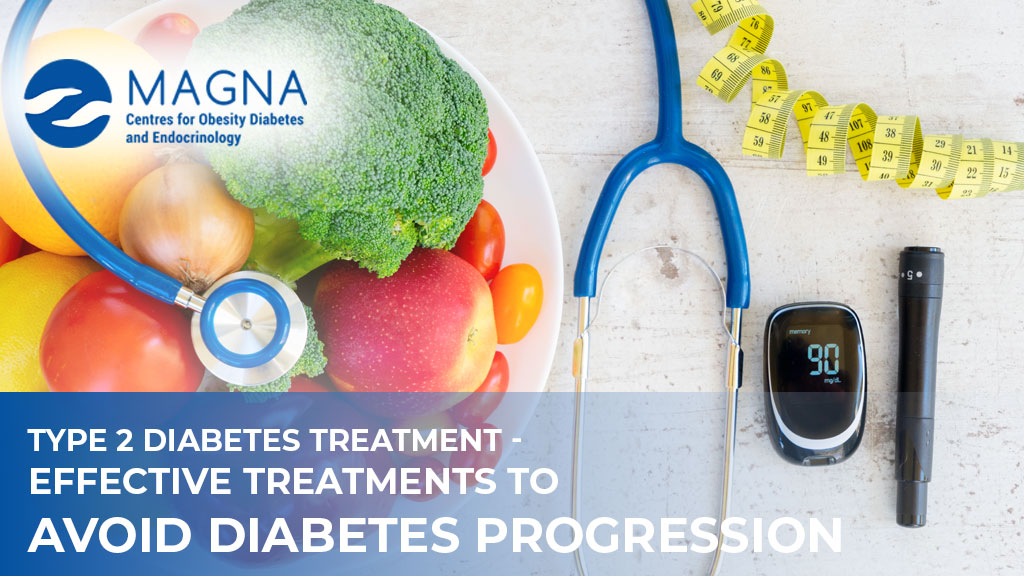
-
Posted By magna
-
-
Comments 0
Type 2 Diabetes Treatment – Effective Treatments to Avoid Diabetes Progression.
Type 2 diabetes is a chronic condition that occurs when the body is unable to properly use or produce insulin, leading to high blood sugar levels. If left untreated, type 2 diabetes can lead to serious complications, including heart disease, stroke, nerve damage, and kidney damage.
There are several effective treatments available for type 2 diabetes, and the most appropriate treatment plan will depend on a variety of factors, including the severity of the diabetes, the individual’s overall health, and their lifestyle. Here are some common treatments for type 2 diabetes:
- Lifestyle changes: Making healthy lifestyle choices, such as eating a balanced diet, getting regular physical activity, and maintaining a healthy weight, can help to manage type 2 diabetes and prevent complications.
- Medications: There are several medications that can be used to treat type 2 diabetes, including insulin, oral medications, and injectable medications. These medications work by helping the body to use or produce insulin, or by helping to regulate the levels of glucose in the blood.
- Insulin therapy: Insulin is a hormone that is produced by the pancreas and is necessary for the body to properly use glucose for energy. People with type 2 diabetes may need to take insulin injections or use an insulin pump to help regulate their blood sugar levels.
- Continuous glucose monitoring: Continuous glucose monitoring systems (CGMs) use a small sensor that is placed under the skin to continuously measure blood sugar levels. This can help people with type 2 diabetes to better understand their blood sugar patterns and make adjustments to their treatment plan as needed.
- Bariatric surgery: In some cases, people with type 2 diabetes may be able to improve their blood sugar control and potentially even achieve diabetes remission through bariatric surgery. This type of surgery is typically only recommended for people with a body mass index (BMI) of 40 or higher, or a BMI of 35 or higher with significant comorbidities such as high blood pressure or sleep apnea.
It’s important to work with a healthcare provider to develop a treatment plan that is right for you and to stick with your treatment plan to help prevent diabetes progression and complications.



